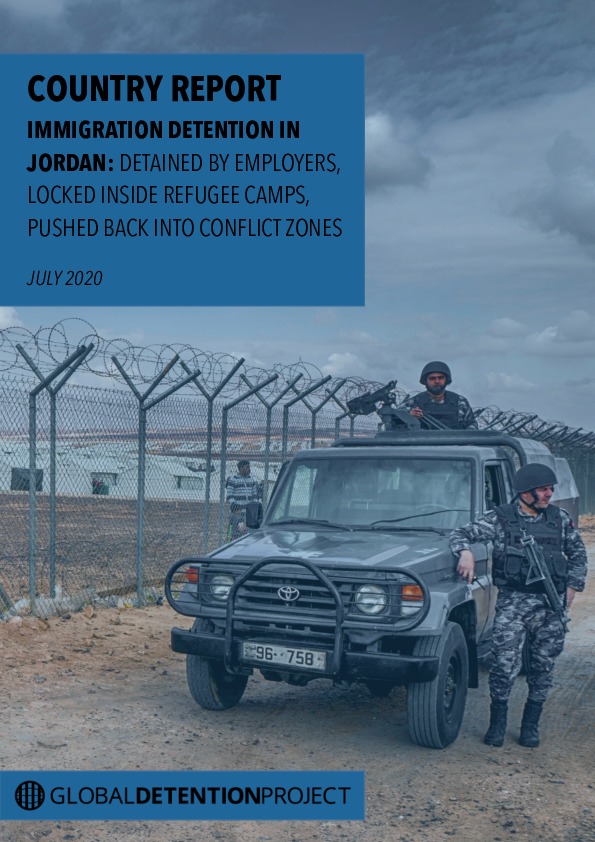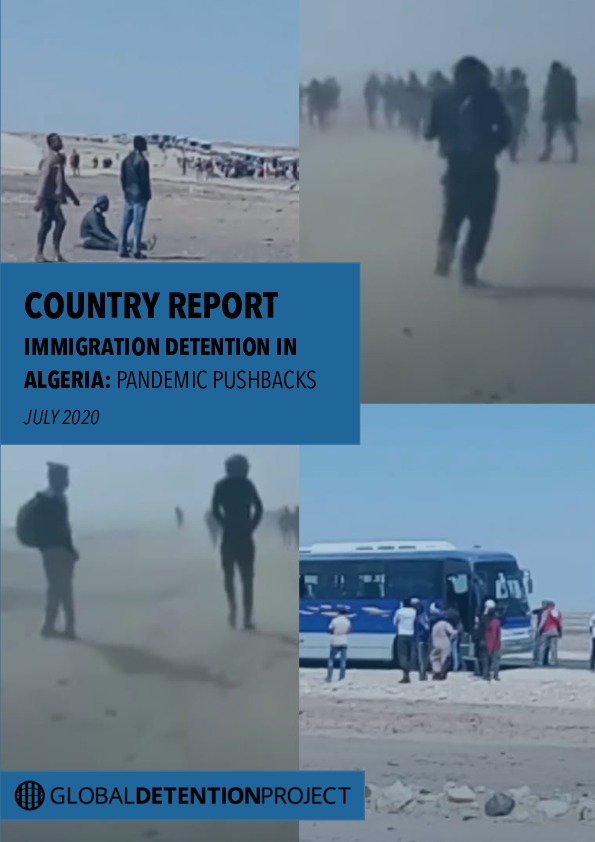An important transit and destination country for migrants, Morocco has witnessed significant migratory flows in recent decades. Amongst these flows number thousands of women migrants and asylum seekers, many of whom have experienced abuse and rights violations on their journey to the country. […]
Migrant Rights
Submission to the Committee on Migrant Workers: El Salvador
Since opening a dedicated immigration detention facility in 2008, little information has surfaced regarding the conditions that detainees face inside. During the Covid-19 pandemic meanwhile, concerns have been raised regarding the country’s quarantine facilities in which large numbers of returnees have been confined. […]

Joint Submission to the Committee on Migrant Workers: Morocco
Despite announcing a new “humanitarian approach” to migration and asylum affairs in 2013, many migrants and asylum seekers continue to face harsh treatment, including arbitrary arrest, forced displacement, detention, and deportation. […]

Immigration Detention in Jordan: Detained by Employers, Locked Inside Refugee Camps, Pushed Back into Conflict Zones
Jordan has long played an important role in hosting refugees from neighbouring Arab states and has the second-largest share of refugees per capita worldwide. Although the country has at times been praised for its reception practices, arrests, forced deportations—including into the Syrian conflict zone—and poor conditions of detention remain critical concerns. […]

Immigration Detention in Algeria: Pandemic Pushbacks
Reports from international organisations and other observers indicate that Algeria has, during the past decade, employed increasingly punitive methods to limit the entry and stay of refugees, asylum seekers, and undocumented migrants. Sometimes under threat of violence, tens of thousands of people—including women and children—have been forcibly deported in desert areas bordering Mali and Niger. […]

Immigration Detention in Hungary: Transit Zone or Twilight Zone?
Hungary’s efforts to block asylum seekers were at the centre of an important May 2020 European Union Court of Justice ruling concerning its “transit zone” detention sites, located along the border with Serbia. For years, Hungary refused to acknowledge that people were “detained” in these facilities, going so far as to refuse the UN Working Group on Arbitrary Detention entry during its visit to the country in 2018. […]

Immigration Detention in Argentina: A Paradigm Shift?
Argentina, like its South American neighbours, has long de-emphasised detention and deportation in its immigration policies. However, in 2015 its posture changed dramatically after a conservative government took office, which pushed through several restrictive policy reforms and announced the opening of the country’s first specialised immigration detention centre. A new administration that took office in […]

The GDP Launches the “Covid-19 Global Immigration Detention Platform”
As the coronavirus pandemic changes the lives of societies around the world, countries are being forced to alter their detention and deportation decisions. The GDP has launched a new, dedicated Covid-19 global tracking platform to monitor governments’ treatment of immigration detainees during the crisis. […]

Immigration Detention in Tunisia: Shrouded in Secrecy
Foreigners in Tunisia, particularly those from sub-Saharan Africa, face endemic racism, little or no possibility of seeking asylum because the country has yet to adopt a refugee protection regime, and pushbacks into Libya and Algeria. There is little transparency with respect to detention conditions of migrants and refugees or their treatment in border regions. Although the country had begun implementing measures in March 2020 to safeguard staff and inmates at the country’s prisons in response to the Covid-19 crisis, no such measures appear to have been taken with respect to people detained for immigration reasons. […]

COVID-19 – Respecting the Rights of Migrants and Refugees
As the coronavirus pandemic changes the lives of societies around the world, so too must it spur consideration for how countries are choosing to treat people in their custody for immigration- or asylum-related reasons. This need is all the more pressing given how leaders in many countries have begun capitalising on the disease’s spread to fuel […]



